A discussion on the importance of teaching the subject of "Apsuara" in the schools of Abkhazia was held at the National Library named after I. Papaskir in Ochamchira.
The head of the Women’s Coordinating Council under the WAC Ekaterina Bebia launched a series of discussions dedicated to the issues of preserving and popularizing the moral and ethical code of "Apsuara", including through teaching in schools, by a meeting with teachers and heads of educational institutions of Ochamchira and villages of Ochamchira district. Each meeting will be accompanied by a screening of archival videos and the participation of representatives of the older generation, scientific and creative intelligentsia. At the first stage of the project it is planned to hold discussion meetings in three districts of Abkhazia: Ochamchira, Gudauta, Tkuarchal.
The meeting was also attended by the chairman of the Council of Elders of Abkhazia, Apollon Dumaa, the chairman of the Council of Elders of the Ochamchira district, Yuri Lagvilava, and public activist Ivan Kakalia, who, like all those present, expressed his positive attitude towards the introduction of "Apsuara" as a separate subject in the school curriculum.
The participants in the discussion were shown excerpts from archival videos, in which the guests discussed various aspects of "Apsuara". Among the archival footage were those where the former head of the Kutol school Pantik Tabagua talked about the inclusion of "Apsuara" in the school curriculum, the writer Boris Gurgulia about preserving the blood unity of Abkhazians, and archaeologist Igor Tsvinaria about the culture of wearing national clothes.
Speaking with an opening speech at the presentation, the author of the project, Ekaterina Bebia, noted that the next five years in the work of the World Abaza Congress were called the years of "Apsuara". She also thanked Mussa Ekzekov, Chairman of the Supreme Council of the WAC, for his contribution to the creation and development of the project.
"It was Mussa Ekzekov who noted the need to create a plan of work on the preservation of traditions, customs, the moral and ethical code of Abkhazians and Abaza in modern society. I want to express my deep gratitude to Mussa Ekzekov, thanks to whom all WAC projects exist and develop. Every day he makes a significant contribution to the preservation and further development of the Abkhaz-Abaza traditional culture. His efforts are invaluable," she added.
The Chairman of the Council of Elders of Abkhazia, Apollon Dumaa, thanked Ekaterina Bebia and the WAC for raising the issue and noted the importance of holding discussions on this topic.
"Today, our traditional values compete with Internet and gadgets, through which our younger generation receives a variety of information that is opposed to what "Apsuara" teaches. It is important for us to survive in this competition," Dumaa said.
The head of the department for youth development and physical culture, Valery Berzenia, expressed his opinion that modern gadgets should also be used in the study of "Apsuara".
"We have to keep up with the times. If our children receive information online, then we must also meet the times and create content for our children in the Abkhaz language, which will be convenient for them to receive through gadgets. These can be cartoons in Abkhaz, translated films or short thematic videos. There should be a lot of them and for different tastes," Berzenia said.
Milana Agukhava, a teacher at the Dzhgerda Secondary School, noted that it would be extremely difficult to preserve the foundations of traditional culture without knowledge of the native language.
"The first and main problem that we must solve is the study of the native language. Children who do not speak the Abkhaz language will not be able to think in the spirit of our culture," Agukhava stressed.
The head of the WAC department for education, social activity and health care, Izolda Khagba, emphasized the importance of teaching the basics of "Apsuara" to the younger generation.
"The moral and ethical code of "Apsuara" includes traditional norms of behavior, honor and dignity. In some general education schools in Abkhazia there are electives for "Apsuara". However, I believe that the inclusion of "Apsuara" as a compulsory subject in the school curriculum will be another important step in educating our children in the spirit of Abkhazian traditions," said Khagba.
According to her, love for the national traditional culture should be instilled in the younger generation.
Concluding the event, Ekaterina Bebia summed up the results of the meeting and shared her plans for the future.
"Today we discussed a number of important issues and shared our views. In the context of globalization, the issues of preserving the traditional Abkhazian culture are acute in modern society. However, I am sure that together we can overcome these problems," she shared.
A series of discussions on "Apsuara" was launched by the head of the Women's Coordination Council under the WAC Ekaterina Bebia. The project is aimed at popularizing the foundations of the "Apsuara" moral and ethical code among the young and adult generations of Abkhazia.
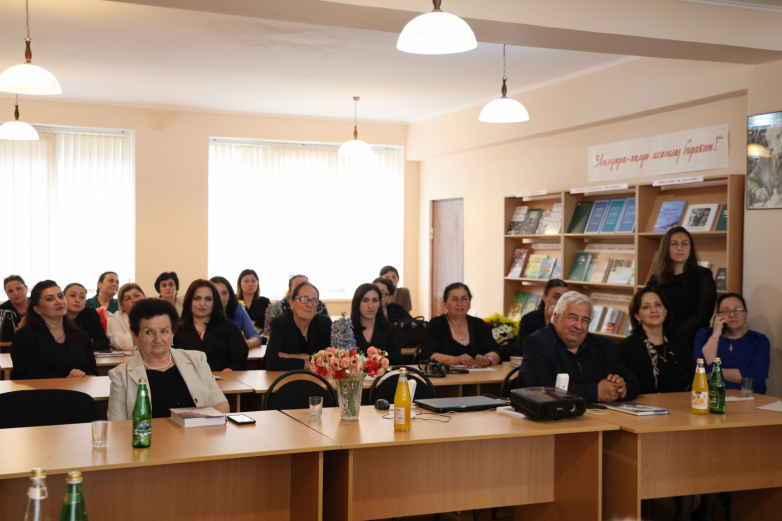
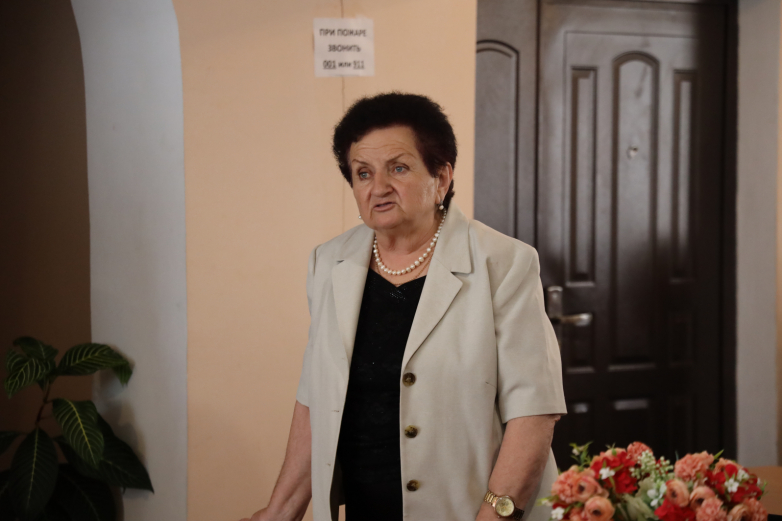
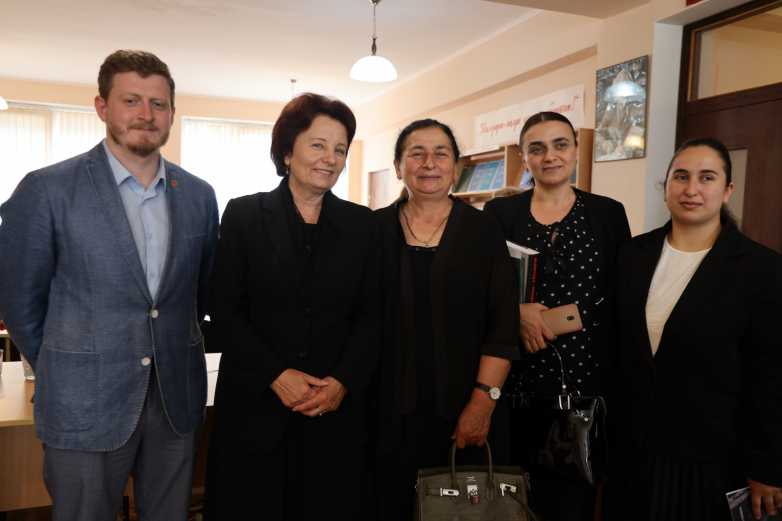
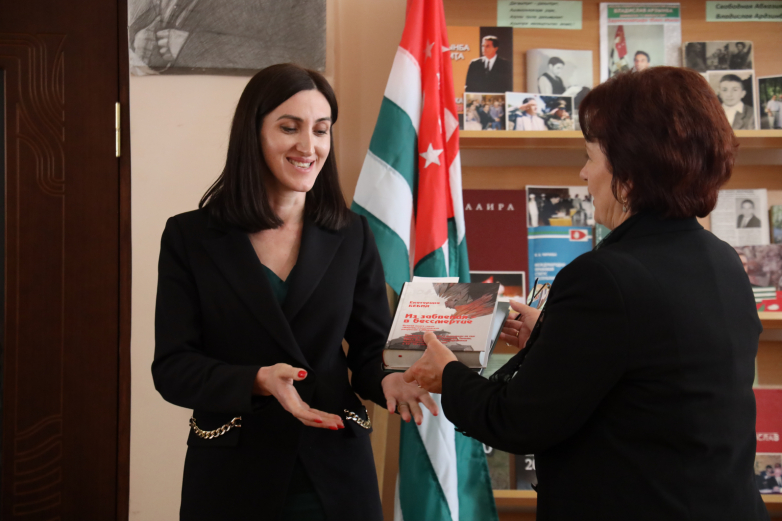
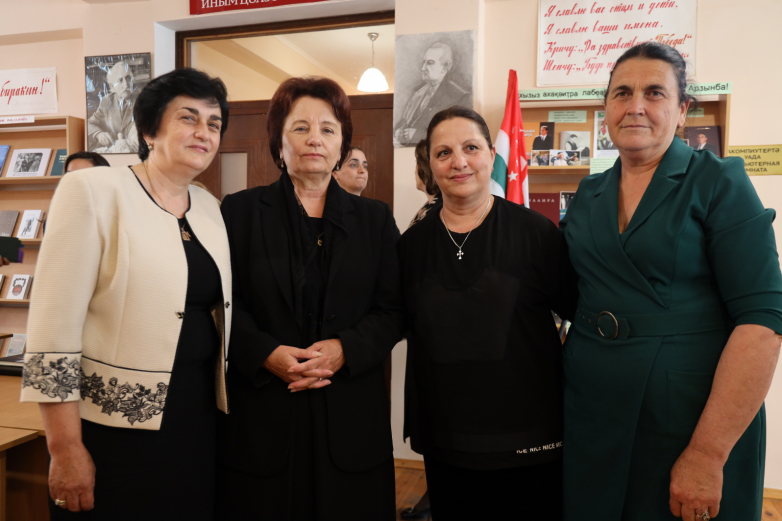
to login or register.